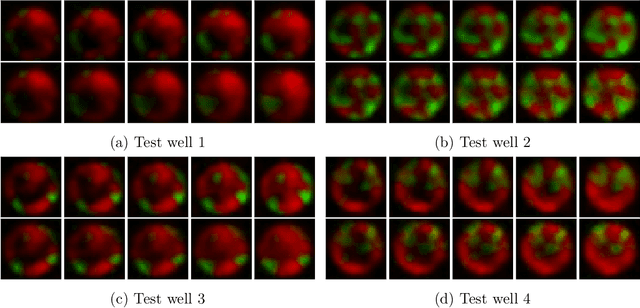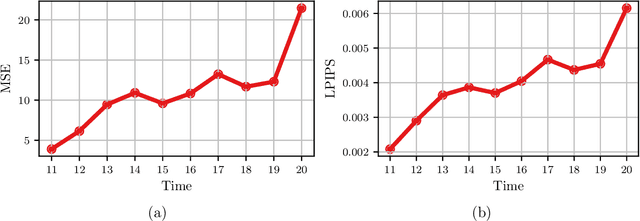Performing Video Frame Prediction of Microbial Growth with a Recurrent Neural Network
Paper and Code
May 12, 2022



A Recurrent Neural Network (RNN) was used to perform video frame prediction of microbial growth for a population of two mutants of Pseudomonas aeruginosa. The RNN was trained on videos of 20 frames that were acquired using fluorescence microscopy and microfluidics. The network predicted the last 10 frames of each video, and the accuracy's of the predictions was assessed by comparing raw images, population curves, and the number and size of individual colonies. Overall, we found the predictions to be accurate using this approach. The implications this result has on designing autonomous experiments in microbiology, and the steps that can be taken to make the predictions even more accurate, are discussed.
 Add to Chrome
Add to Chrome Add to Firefox
Add to Firefox Add to Edge
Add to Edge